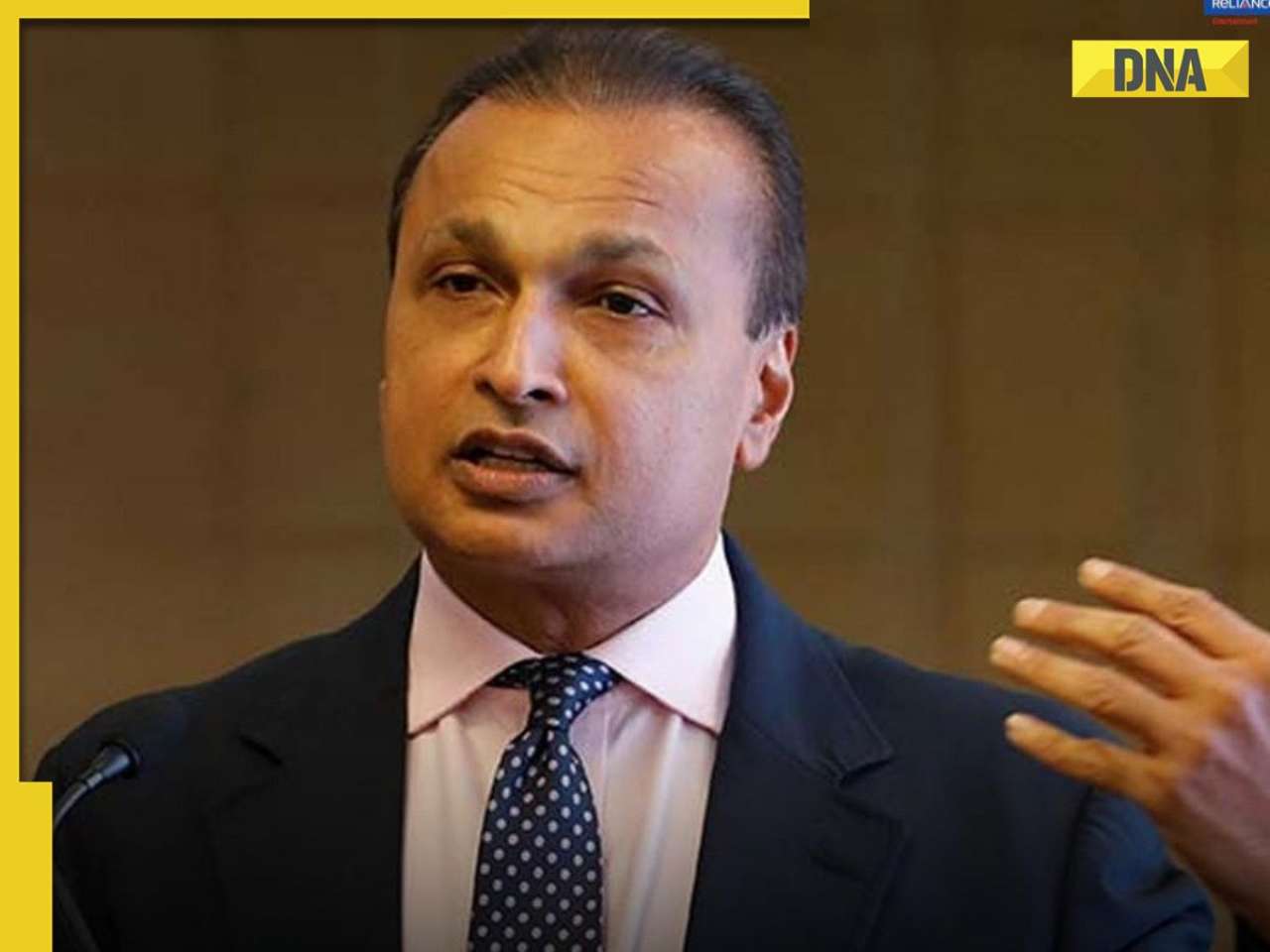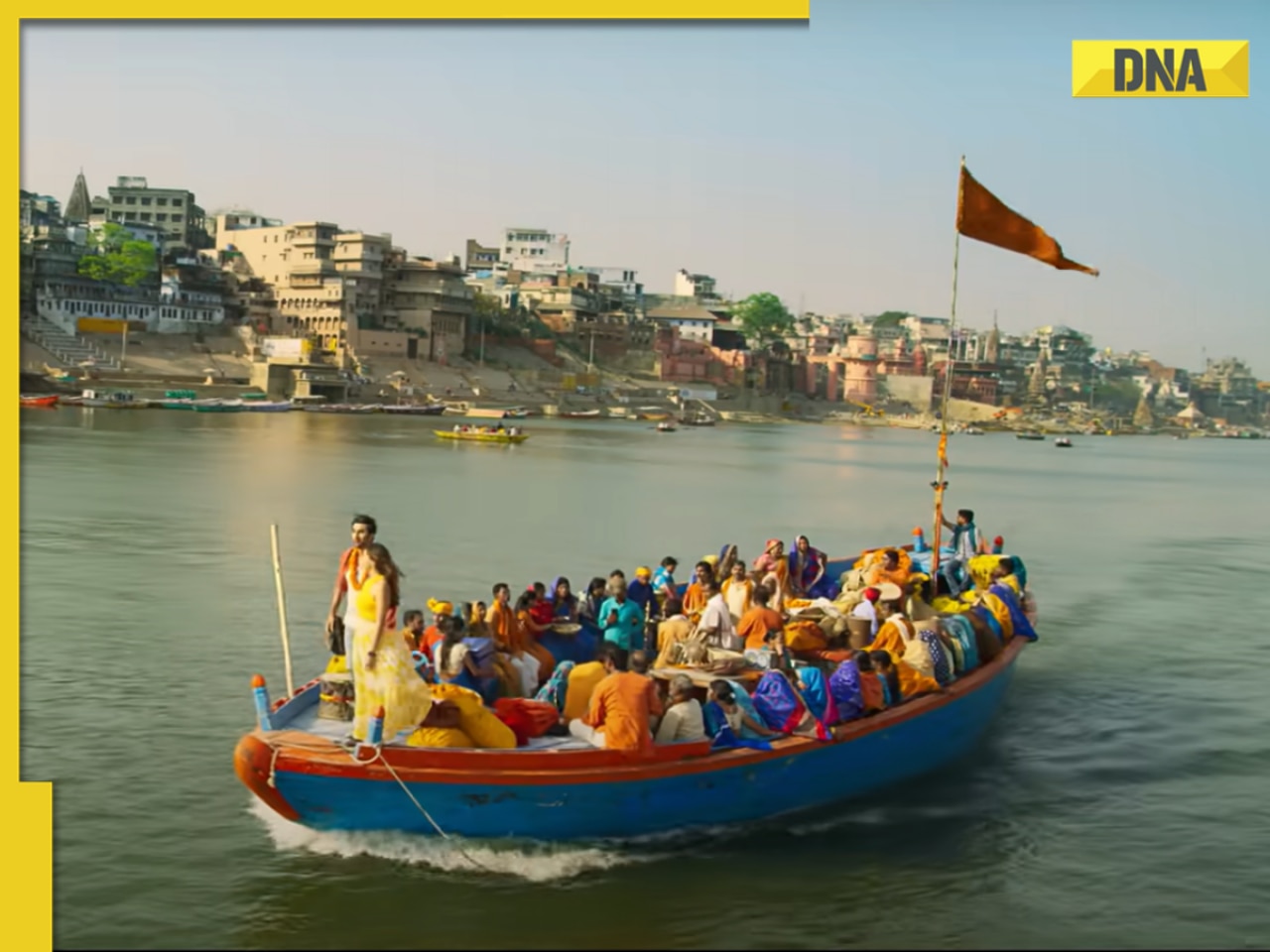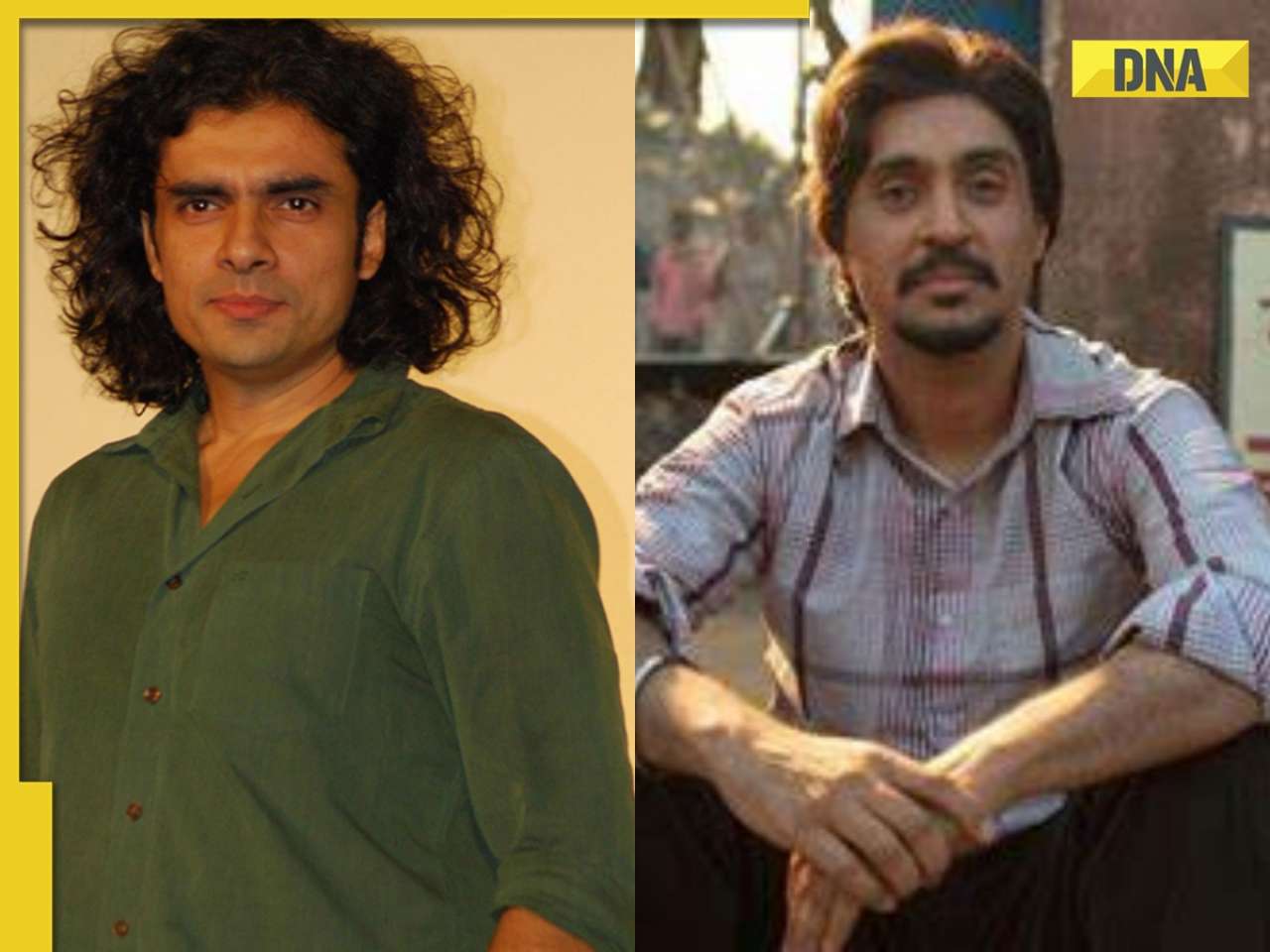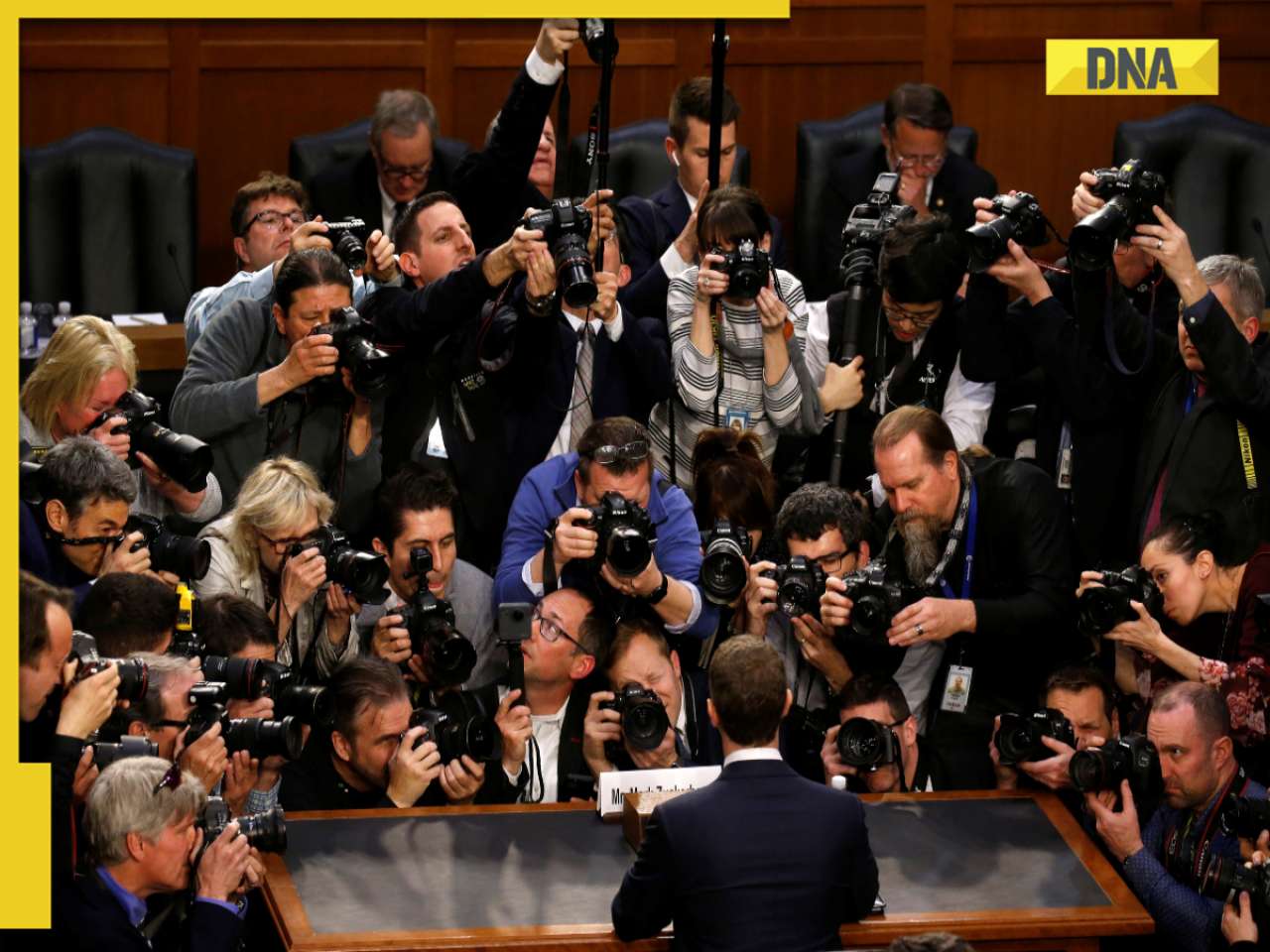Urbz, a unique interactive urban planning project, is trying to come out with what could be the 21st century’s answer to urban ills – the user-generated city.
There is an untold story behind Japan’s regeneration after World War II, when the country was practically levelled to the ground by bombing. The Japanese government began its task of rebuilding, but concentrated mainly on putting industry back on its feet.
In Tokyo, the work of housing and other development, was left to local activists and residents. Forced to find their own funds for projects, they created innovative ways of putting their savings to use. “Since the economy was intrinsically linked to urban development, this eventually led to the financial regeneration of Japan itself,” says Matias Echanove, an urban planner.
This bottom-up, or incremental, development is exactly what Echanove and his colleagues, Rahul Srivastava and Geeta Mehta, in their newly-formed organisation Urbz, are trying to promote in Mumbai. “We’ve found that neighbourhoods developed by residents themselves are more vibrant and respond more to the needs of local people than anything that been master-planned,” says Echanove. “At Urbz, we’re trying to see how we can harness this collective intelligence and apply a similar strategy to the rest of Mumbai. People often don’t know they have that ability already.” Urbz uses partners on the ground, as well as bigger collaborators like Pukar, to help residents document everything they can about their neighbourhood — and then put it in a space, like a Wikipedia site, that can be accessed by anyone around the world. Working closely with Pukar’s 400 barefoot researchers of the Youth Fellowship Programme, Urbz has been able put together an exhaustive website about Dharavi, which has received over 1 lakh hits since it was uplinked last year. “We want to collect whatever data we can — videos, photos, sounds, documents — and put them on a site where other people can add to them, have discussions about them or borrow from them,” says co-founder Mehta.
In the process, Urbz is also forcing a relook at many civic issues. The first is to find imaginative ways of preserving certain heritage neighbourhoods. Kotachiwadi, where Echanove lives, is in the middle of trying to revamp itself — by itself. The locality is a microcosm of Mumbai, with communities from all over India settled here, and leaving their imprint on homes and buildings. “The neighbourhood shows tremendous diversity of habitat,” says Srivastava. “You can actually see bits of Surat or Ratnagiri here.” But owners of the heritage structures can no longer afford to maintain them. So Urbz is trying to help them generate additional income from small, economic activity — a retail outlet here, a coffee or book shop there. In the process Kotachiwadi, which has long been dismissed as a rundown area, could well transform itself into a tourist hub or a Sunday hangout for the city’s well-heeled. “The development of Kotachiwadi is very much in line with incremental development,” adds Srivastava. "Self-development was the norm for many communities in Mumbai. Places like Kalbadevi, Girgaum and Dharavi followed the logic of what happened in Tokyo.”
In its Dharavi project, Urbz tries to question why certain kinds of use of space are dismissed by planners when they might be perfectly workable. “In Dharavi we came across the archetypal ‘tool house’ — a place where you live, work from and, when you’re not using it, rent out for some extra income,” says Srivastava. “It’s the best use of resources, and yet it gets no validation. We want to change people’s views about that.” If de-legitimising is a problem, forcing certain communities into extinction is, too.
Like the hawkers, with whom the state has been at loggerheads. “The feriwala is a Mumbai mascot,” says Echanove. “The city has been all about nomadism and movement, and the hawker’s presence has characterised it.” In other words, itinerant workers make us define urban living differently: Not in terms of fixed things, but as a constantly moving, changing and evolving entity. In a similar way, the bazaar culture in the city can never really disappear, no matter how many malls come up. “Malls are a default,” adds Echanove. “If you don't have anything else, you will have a mall. But look at Dadar. You have mall-like buildings, but full of small shops inside. Has anyone been able to shut them down?”
For Urbz, it also helps to have partners at places like Barcelona, Tokyo, Geneva, Chile and Amsterdam. Many of them bring valuable insights to similar community-master planner conflicts abroad. For instance, one of the things the Urbz team in Mumbai is trying to implement is a method by which developers (whether private or the government), when they draw up their plans, have to take the local residents’ mandate into consideration. In Geneva, urban planners are bound to do this, so projects often take as much as decades to get cleared — plans are placed, vetoed, revised and perhaps vetoed again. In Mumbai, Urbz wants to collate people’s voices from different neighbourhoods pre-emptively, so developers can work these into their projects. The democratic process in Geneva is great, but it needs to be hastened up, says Srivastava.
The result, Urbz hopes, might be the 21st century’s answer to urban ills — the user-generated city. To help local communities develop themselves, or at least participate in whatever development is happening around them. “We like Mumbai because it is an urban jungle rather than a cultivated field,” says Echanove. “Where people tend to go the hunter-gatherer way, knowing what they want and how to get it, rather than being tied to their land and real estate. If we can figure out how to navigate this model, then many of the problems cities face today, will be resolved.”
For more details visit www.urbz.org
![submenu-img]() This singer left Air Force, sang at churches, became superstar; later his father killed him after...
This singer left Air Force, sang at churches, became superstar; later his father killed him after...![submenu-img]() Indian-origin man says Apple CEO Tim Cook pushed him...
Indian-origin man says Apple CEO Tim Cook pushed him...![submenu-img]() Anil Ambani’s Rs 96500000000 Reliance deal still waiting for green signal? IRDAI nod awaited as deadline nears
Anil Ambani’s Rs 96500000000 Reliance deal still waiting for green signal? IRDAI nod awaited as deadline nears![submenu-img]() Most popular Indian song ever on Spotify has 50 crore streams; it's not Besharam Rang, Pehle Bhi Main, Oo Antava, Naina
Most popular Indian song ever on Spotify has 50 crore streams; it's not Besharam Rang, Pehle Bhi Main, Oo Antava, Naina![submenu-img]() Did Diljit Dosanjh cut his hair for Amar Singh Chamkila? Imtiaz Ali reveals ‘he managed to…’
Did Diljit Dosanjh cut his hair for Amar Singh Chamkila? Imtiaz Ali reveals ‘he managed to…’ ![submenu-img]() DNA Verified: Is CAA an anti-Muslim law? Centre terms news report as 'misleading'
DNA Verified: Is CAA an anti-Muslim law? Centre terms news report as 'misleading'![submenu-img]() DNA Verified: Lok Sabha Elections 2024 to be held on April 19? Know truth behind viral message
DNA Verified: Lok Sabha Elections 2024 to be held on April 19? Know truth behind viral message![submenu-img]() DNA Verified: Modi govt giving students free laptops under 'One Student One Laptop' scheme? Know truth here
DNA Verified: Modi govt giving students free laptops under 'One Student One Laptop' scheme? Know truth here![submenu-img]() DNA Verified: Shah Rukh Khan denies reports of his role in release of India's naval officers from Qatar
DNA Verified: Shah Rukh Khan denies reports of his role in release of India's naval officers from Qatar![submenu-img]() DNA Verified: Is govt providing Rs 1.6 lakh benefit to girls under PM Ladli Laxmi Yojana? Know truth
DNA Verified: Is govt providing Rs 1.6 lakh benefit to girls under PM Ladli Laxmi Yojana? Know truth![submenu-img]() Alia Bhatt wears elegant saree made by 163 people over 1965 hours to Met Gala 2024, fans call her ‘princess Jasmine’
Alia Bhatt wears elegant saree made by 163 people over 1965 hours to Met Gala 2024, fans call her ‘princess Jasmine’![submenu-img]() Jr NTR-Lakshmi Pranathi's 13th wedding anniversary: Here's how strangers became soulmates
Jr NTR-Lakshmi Pranathi's 13th wedding anniversary: Here's how strangers became soulmates![submenu-img]() Streaming This Week: Heeramandi, Shaitaan, Manjummel Boys, latest OTT releases to binge-watch
Streaming This Week: Heeramandi, Shaitaan, Manjummel Boys, latest OTT releases to binge-watch![submenu-img]() Remember Ayesha Kapur? Michelle from Black, here's how actress, nutrition coach, entrepreneur looks after 19 years
Remember Ayesha Kapur? Michelle from Black, here's how actress, nutrition coach, entrepreneur looks after 19 years![submenu-img]() Remember Heyy Babyy's cute 'Angel' Juanna Sanghvi? 20 year-old looks unrecognisable now, fans say 'her comeback will...'
Remember Heyy Babyy's cute 'Angel' Juanna Sanghvi? 20 year-old looks unrecognisable now, fans say 'her comeback will...'![submenu-img]() DNA Explainer: Why Harvey Weinstein's rape conviction was overturned, will beleaguered Hollywood mogul get out of jail?
DNA Explainer: Why Harvey Weinstein's rape conviction was overturned, will beleaguered Hollywood mogul get out of jail?![submenu-img]() What is inheritance tax?
What is inheritance tax?![submenu-img]() DNA Explainer: What is cloud seeding which is blamed for wreaking havoc in Dubai?
DNA Explainer: What is cloud seeding which is blamed for wreaking havoc in Dubai?![submenu-img]() DNA Explainer: What is Israel's Arrow-3 defence system used to intercept Iran's missile attack?
DNA Explainer: What is Israel's Arrow-3 defence system used to intercept Iran's missile attack?![submenu-img]() DNA Explainer: How Iranian projectiles failed to breach iron-clad Israeli air defence
DNA Explainer: How Iranian projectiles failed to breach iron-clad Israeli air defence![submenu-img]() This singer left Air Force, sang at churches, became superstar; later his father killed him after...
This singer left Air Force, sang at churches, became superstar; later his father killed him after...![submenu-img]() Most popular Indian song ever on Spotify has 50 crore streams; it's not Besharam Rang, Pehle Bhi Main, Oo Antava, Naina
Most popular Indian song ever on Spotify has 50 crore streams; it's not Besharam Rang, Pehle Bhi Main, Oo Antava, Naina![submenu-img]() Did Diljit Dosanjh cut his hair for Amar Singh Chamkila? Imtiaz Ali reveals ‘he managed to…’
Did Diljit Dosanjh cut his hair for Amar Singh Chamkila? Imtiaz Ali reveals ‘he managed to…’ ![submenu-img]() Watch: Arti Singh gets grand welcome at husband Dipak's house with fairy lights and fireworks, video goes viral
Watch: Arti Singh gets grand welcome at husband Dipak's house with fairy lights and fireworks, video goes viral![submenu-img]() Meet actress, who belongs to family of superstars, quit films after 19 flops, no single hit in 9 years; is still worth…
Meet actress, who belongs to family of superstars, quit films after 19 flops, no single hit in 9 years; is still worth…![submenu-img]() IPL 2024: Suryakumar Yadav's century power MI to 7-wicket win over SRH
IPL 2024: Suryakumar Yadav's century power MI to 7-wicket win over SRH![submenu-img]() DC vs RR, IPL 2024: Predicted playing XI, live streaming details, weather and pitch report
DC vs RR, IPL 2024: Predicted playing XI, live streaming details, weather and pitch report![submenu-img]() Watch: Team India’s new jersey for T20 World Cup 2024 unveiled
Watch: Team India’s new jersey for T20 World Cup 2024 unveiled![submenu-img]() DC vs RR IPL 2024 Dream11 prediction: Fantasy cricket tips for Delhi Capitals vs Rajasthan Royals
DC vs RR IPL 2024 Dream11 prediction: Fantasy cricket tips for Delhi Capitals vs Rajasthan Royals![submenu-img]() IPL 2024: Kolkata Knight Riders take top spot after 98 runs win over Lucknow Super Giants
IPL 2024: Kolkata Knight Riders take top spot after 98 runs win over Lucknow Super Giants![submenu-img]() Indian-origin man says Apple CEO Tim Cook pushed him...
Indian-origin man says Apple CEO Tim Cook pushed him...![submenu-img]() Meet man whose salary was only Rs 83 but his net worth grew by Rs 7010577000000 in 2023, he is Mukesh Ambani's...
Meet man whose salary was only Rs 83 but his net worth grew by Rs 7010577000000 in 2023, he is Mukesh Ambani's...![submenu-img]() Job applicant offers to pay Rs 40000 to Bengaluru startup founder, here's what happened next
Job applicant offers to pay Rs 40000 to Bengaluru startup founder, here's what happened next![submenu-img]() Viral video: Family fearlessly conducts puja with live black cobra, internet reacts
Viral video: Family fearlessly conducts puja with live black cobra, internet reacts![submenu-img]() Woman demands Rs 50 lakh after receiving chicken instead of paneer
Woman demands Rs 50 lakh after receiving chicken instead of paneer















































)
)
)
)
)
)